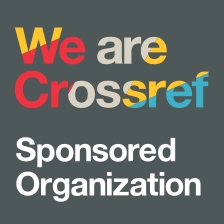The Effect of Political Content Exposure Instagram @bijakmemilih.id on Voting Interests in the 2024 Elections
DOI:
https://doi.org/10.35457/translitera.v13i2.3611Keywords:
Content exposure, Instagram, voting interestAbstract
Data from the Kominfo RI notes that Instagram is in third place with 148 hoax contents. The @bijakmemilih.id Instagram account presents content about elections from a neutral, objective, and interestingly packaged side to target novice voters. This research is interesting to find out whether or not there is an influence from the exposure of @bijakmemilih.id content on the interest in voting for novice voters and senior voters. Respondents of this study totaled 100 and were samples taken from the population of Instagram followers @bijakmemilih.id. This research uses the Elaboration Likelihood Model theory with a quantitative approach and survey method. Based on 100 answers, the results show that novice voters and senior voters are influenced by the exposure of @bijakmemilih.id content so that they have an interest in voting in the 2024 election, the message is received through the central route.
References
Adiyanta, F. C. S. (2019). Hukum dan Studi Penelitian Empiris: Penggunaan Metode Survey sebagai Instrumen Penelitian Hukum Empiris. Administrative Law and Governance Journal, 2(4): 697–709. https://doi.org/10.14710/alj.v2i4.697-709
Ardianto, E., Komala, L., & Karlinah, S. (2017). Komunikasi Massa: Suatu Pengantar. Bandung: Simbiosa Rekatama Media.
Atsauriyah, I. S. (2018). PENGARUH ELECTRONIC WORD OF MOUTH TERHADAP MINAT PEMBELIAN PADA PRODUK FASHION DI JD.ID. Universitas Brawijaya.
Budhi, K. H., & Pratiwi, A. (2021). PENGARUH TERPAAN KONTEN AKUN INSTAGRAM @RINTIKSEDU TERHADAP MINAT MENDENGARKAN PODCAST RINTIK SEDU. The Source Jurnal Ilmu Komunikasi, 3(1): 79–87. https://doi.org/10.36441/thesource.v3i1.670
Chyntia, P., & Rahmadanita, S. (2021). PENGARUH KONTEN INSTAGRAM STORY DAN PERSEPSI MANFAAT TERHADAP KEPERCAYAAN ZODIAK (STUDI KASUS PENGIKUT INSTAGRAM @AMRAZING). Medialog: Jurnal Ilmu Komunikasi, 4(1): 178–185. https://doi.org/10.35326/medialog.v4i1.988
Creswell, J. W. (2014). Research Design: Qualitative, Quantitative and Mixed Method Approaches (P. G. Smith, R. H. Morrow, & D. A. Ross, Eds.; 4th ed.). Thousand Oaks: Sage. https://doi.org/10.1093/med/9780198732860.001.0001
Djollong, A. F. (2014). TEHNIK PELAKSANAAN PENELITIAN KUANTITATIF. ISTIQRA’, 11(1): 86–100.
Firmansyah, D., & Dede. (2022). Teknik Pengambilan Sampel Umum dalam Metodologi Penelitian: Literature Review. Jurnal Ilmiah Pendidikan Holistik (JIPH), 1(2): 85–114. https://doi.org/10.55927/jiph.v1i2.937
Ghozali, I. (2021). Aplikasi Analisis Multivariate (10th ed.). Semarang: Badan Penerbit Universitas Diponegoro.
Kominfo. (2024). Jaga Ruang Digital, Menkominfo: Kami Tangani 203 Isu Hoaks Pemilu 2024. Kominfo.Go.Id.https://www.kominfo.go.id/content/detail/53920/siaran-pers-no-03hmkominfo012024-tentang-jaga-ruang-digital-menkominfo-kami-tangani-203-isu-hoaks-pemilu-2024/0/siaran_pers
Maulana, Y., Mu’arifah, A., & Nanda, S. E. (2023). Pengaruh Media Sosial @pinterpolitik Terhadap Kebutuhan Informasi Politik Generasi Z. Jurnal Ilmu Komunikasi, 13(1): 48–58.
Mubaroq, H., & Hidayati, Y. N. (2022). Pengaruh Penggunaan Media Sosial Instagram Dan Facebook Dalam Pembentukan Budaya Alone Together Pada Kalangan Remaja Di Desa Ambulu Kecamatan Sumberasih Kabupaten Probolinggo. POPULIKA, 10(2): 54–61. https://doi.org/10.37631/populika.v10i2.497
Perloff, R. (2017). The Dynamics of Persuasion (6th ed.). New York: Routledge.
Pontoh, A., Soeharno, F., & Risjad, M. (2019). Application of The Elaboration Likelihood Models in The Political Campaign of Sudrajat-Syaikhu During The West Java Regional General Election in 2018. Journal of Politics and Policy, 2(1): 83–94. https://doi.org/10.21776/ub.jppol.2019.002.01.4
Priyono. (2016). Metode Penelitian Kuantitatif (T. Chandra, Ed.; 1st ed.). Sidoarjo: Zifatama Publishing.
Ratnamulyani, I. A., & Maksudi, B. I. (2018). PERAN MEDIA SOSIAL DALAM PENINGKATAN PARTISIPASI PEMILIH PEMULA DIKALANGAN PELAJAR DI KABUPATEN BOGOR. Sosiohumaniora - Jurnal Ilmu-Ilmu Sosial Dan Humaniora, 20(2): 154–161. https://doi.org/10.24198/sosiohumaniora.v20i2.13965
Riani, N. (2017). Model Perilaku Pencarian Informasi Guna Memenuhi Kebutuhan Informasi (Studi Literatur). Publication Library and Information Science, 1(2), 14. https://doi.org/10.24269/pls.v1i2.693
Roflin, E., & Zulvia, F. E. (2021). Kupas Tuntas Analisis Korelasi (M. Nasrudin, Ed.). Pekalongan: PT Nasya Expanding Management.
Ruswati, I. (2018). FAKTOR EKSTERNAL DAN FAKTOR INTERNAL TERHADAP MINAT BERWIRAUSAHA PADA SISWA SMK YAYASAN PENDIDIKAN ISLAM DARUSSALAM CERME GRESIK. JRE: Jurnal Riset Entrepreneurship, 1(2): 38-52. http://dx.doi.org/10.30587/jre.v1i2.415
Soraya, L. (2015). Faktor-Faktor yang Mempengaruhi Minat Masyarakat Jakarta dalam Mengakses Fortal Media Jakarta Smart City. Jurnal Komunikasi, 6(1): 10-23. https://doi.org/10.31294/jkom.v6i1.2458
Sugiyono. (2018). Metode Penelitian Kuantitatif, Kualitatif, dan R&D (Vol. 26). Bandung: Alfabeta.
Suryanto. (2015). Pengantar Ilmu Komunikasi (1st ed.). Bandung: Pustaka Setia.
Whatisupindonesia. (2022). About WIUI. https://whatisupindonesia.com/about
Widi, S. (2022). Data Pemilih Golput saat Pemilu, Turun Drastis pada 2019. Dataindonesia.Id. https://dataindonesia.id/data-pemilu/detail/data-pemilih-golput-saat-pemilu-turun-drastis-pada-2019
Downloads
Published
Issue
Section
License
Authors who publish with this journal agree to the following terms:
- Copyright on any article is retained by the author(s).
- Author grant the journal, right of first publication with the work simultaneously licensed under a Creative Commons Attribution License that allows others to share the work with an acknowledgement of the work’s authorship and initial publication in this journal.
- Authors are able to enter into separate, additional contractual arrangements for the non-exclusive distribution of the journal’s published version of the work (e.g., post it to an institutional repository or publish it in a book), with an acknowledgement of its initial publication in this journal.
- Authors are permitted and encouraged to post their work online (e.g., in institutional repositories or on their website) prior to and during the submission process, as it can lead to productive exchanges, as well as earlier and greater citation of published work.
- The article and any associated published material is distributed under the Creative Commons Attribution-ShareAlike 4.0 International License












